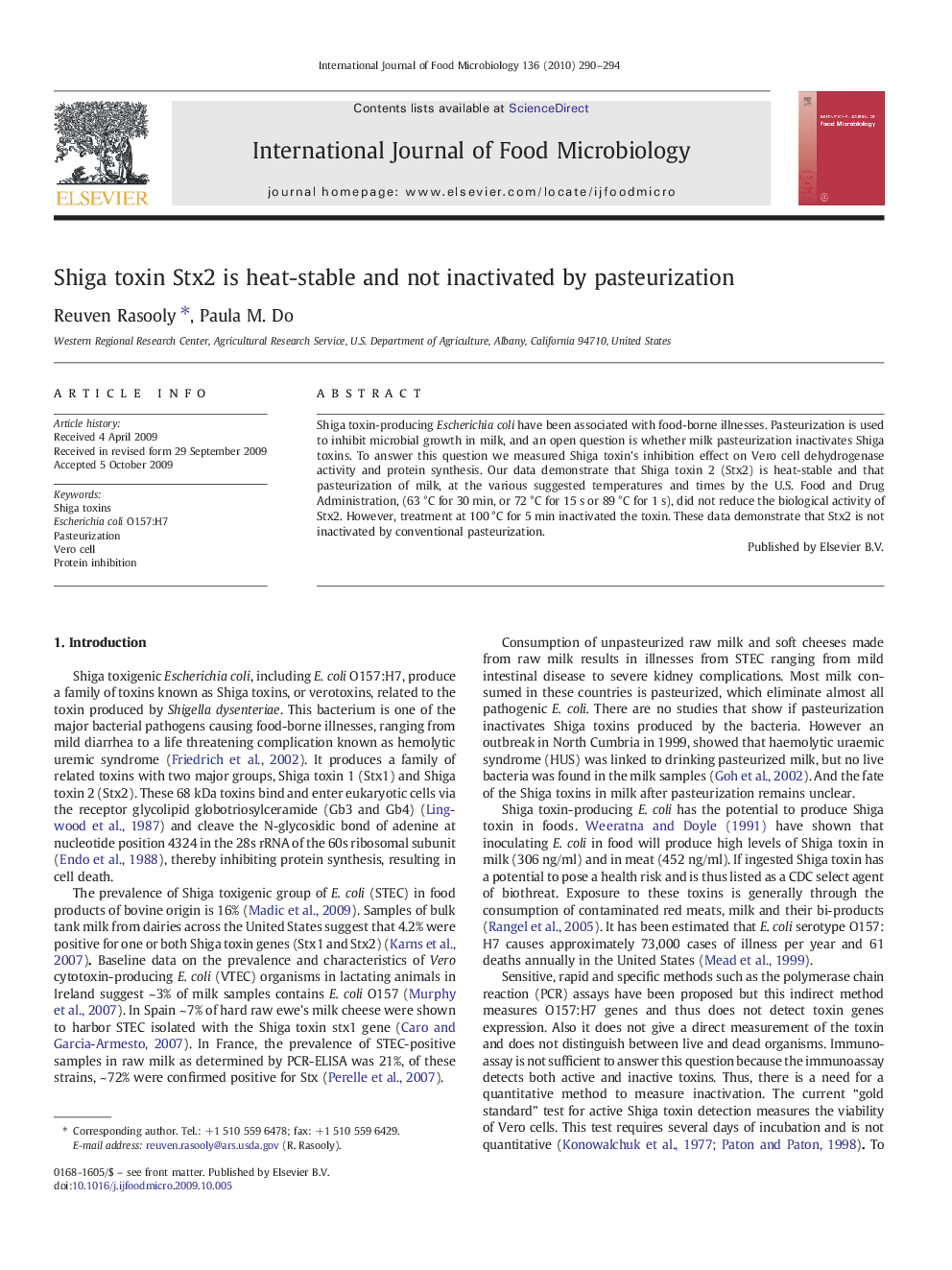| Article ID | Journal | Published Year | Pages | File Type |
|---|---|---|---|---|
| 4368419 | International Journal of Food Microbiology | 2010 | 5 Pages |
Shiga toxin-producing Escherichia coli have been associated with food-borne illnesses. Pasteurization is used to inhibit microbial growth in milk, and an open question is whether milk pasteurization inactivates Shiga toxins. To answer this question we measured Shiga toxin's inhibition effect on Vero cell dehydrogenase activity and protein synthesis. Our data demonstrate that Shiga toxin 2 (Stx2) is heat-stable and that pasteurization of milk, at the various suggested temperatures and times by the U.S. Food and Drug Administration, (63 °C for 30 min, or 72 °C for 15 s or 89 °C for 1 s), did not reduce the biological activity of Stx2. However, treatment at 100 °C for 5 min inactivated the toxin. These data demonstrate that Stx2 is not inactivated by conventional pasteurization.
